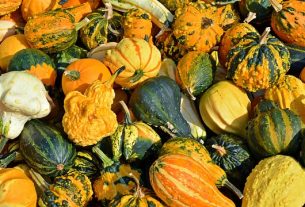Communities worldwide are adopting proper yard waste separation and collection as a strategic approach to reduce organic waste sent to landfills. Local governments partner with waste management companies to offer specialized services, encouraging residents to divide materials like grass clippings, leaves, and small branches from general trash. Participation in these programs not only cuts landfill volumes but transforms yard waste into compost that enriches local soils, supports green spaces, and promotes sustainable practices. Effective organic waste management through yard waste removal and recycling significantly minimizes environmental impact, lowers greenhouse gas emissions, and contributes to ecosystem health.
In an era where sustainability is paramount, reducing organic waste through efficient yard waste removal and recycling has become a collective responsibility. This article explores powerful strategies to minimize your environmental footprint. We delve into the art of proper separation and collection of yard waste, guiding you through local programs tailored for effective recycling. Additionally, we uncover the benefits of composting at home, offering practical techniques and tips on what to include (and avoid). Finally, we highlight community engagement efforts, emphasizing the power of education and collaboration in fostering a greener future through organic waste reduction initiatives.
- Yard Waste Separation and Collection
- – Importance of proper waste segregation
- – Types of organic materials in yard waste
Yard Waste Separation and Collection

Many communities are realizing the benefits of proper yard waste separation and collection as a key strategy in organic waste reduction. By implementing dedicated programs, residents can easily divide their yard trimmings, such as grass clippings, leaves, and small branches, from general household trash. This simple act not only reduces the volume of material sent to landfills but also provides valuable organic resources for recycling and composting initiatives.
Local governments often collaborate with waste management companies to offer specialized collection services. These may include scheduled pick-up events or the provision of special containers for residents to fill and set out for collection. Encouraging participation in such programs can significantly contribute to sustainable practices, ensuring that yard waste is transformed into beneficial materials like compost, which can enrich local soils and support green spaces.
– Importance of proper waste segregation

Proper waste segregation is a crucial step in reducing organic waste, especially for yard waste removal and recycling. It involves separating different types of waste at the source, ensuring that materials like food scraps, garden trimmings, and paper products are kept separate from non-biodegradable items. This practice allows for efficient processing and recycling, maximizing the benefits of organic waste reduction.
When properly segregated, yard waste can be composted, turning into nutrient-rich soil amendments. Additionally, recycled materials like paper and cardboard contribute to a sustainable cycle, reducing demand for new resources. By adopting these practices, individuals and communities can play a significant role in minimizing their environmental footprint and promoting a healthier ecosystem through effective organic waste management.
– Types of organic materials in yard waste

Organic materials in yard waste encompass a diverse range of products from your garden and outdoor spaces. This includes leaves, grass clippings, plant trimmings, flower cuttings, and even food scraps like fruit and vegetable peels, coffee grounds, and eggshells. Properly managing these organic materials is not just about minimizing the amount that ends up in landfills but also offers environmental benefits through recycling and composting.
Yard waste removal and recycling are essential components of sustainable practices. By separating and processing these organic substances, you contribute to a circular economy. Decaying organic matter enriches the soil with nutrients, supporting plant growth and reducing the need for synthetic fertilizers. Moreover, it helps in mitigating greenhouse gas emissions as landfills are major contributors to methane production, a potent climate change factor.
By implementing effective yard waste separation and collection practices, individuals can significantly contribute to both environmental conservation and sustainable resource management. The proper segregation of organic materials from other waste streams is a crucial step in reducing overall disposal volumes and promoting the recycling potential of these resources. Through conscious efforts, we can transform yard waste into valuable compost, fostering a healthier ecosystem and circular economy. Adopting these organic waste reduction strategies not only benefits local environments but also encourages a more sustainable lifestyle for all.



